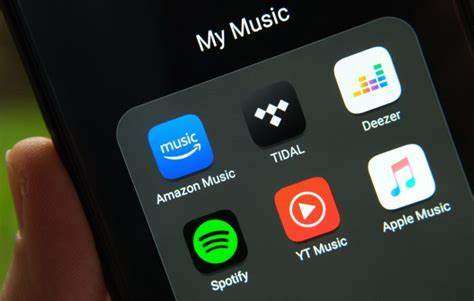Music has played a significant role in driving social and political movements in Ghana throughout history. From the fight for independence to the promotion of cultural identity and social justice, Ghanaian musicians have used their art to inspire change and unite people in their quest for a better society.
One of the most notable instances of music catalyzing social and political movements in Ghana was during the country’s struggle for independence from British colonial rule.
Artists like E.T. Mensah, Osibisa, and Nana Ampadu used their music to rally support for the independence movement, spreading messages of unity, resistance, and national pride.
In the 1970s and 1980s, highlife music became a powerful tool for social commentary and political critique in Ghana. Artists like Fela Kuti, Amakye Dede, and Daddy Lumba used their songs to address issues such as corruption, poverty, and social inequality, and to advocate for change and reform in society.
In more recent years, hip-hop and Afrobeat have emerged as popular genres that continue to drive social and political movements in Ghana. Artists like M.anifest, Sarkodie, Stonebwoy, and Efya use their music to address contemporary issues such as youth unemployment, political corruption, and gender equality, sparking conversations and inspiring action among their fans.

Music festivals and concerts have also become important platforms for promoting social change in Ghana. Events like the Chale Wote Street Art Festival and the Afrochella Music Festival bring together artists, activists, and audiences to celebrate Ghanaian culture, promote social justice, and raise awareness about important issues affecting the country.
Overall, music is a powerful force for driving social and political movements in Ghana, providing a platform for artists to express their views, challenge the status quo, and mobilize people for change.
As long as musicians are willing to use their art to inspire and unite, music will continue to play a vital role in shaping the social and political landscape of Ghana.
In the age of social media, celebrities have become more than just famous faces on screens. They’re now influencers, trendsetters, and even tastemakers.
Celebrities are now able to directly connect with their fans in a way that was previously unimaginable.
With platforms like Twitter, Instagram, and YouTube, stars have more direct access to their followers than ever before. As a result, they can build relationships and engage in conversations that wouldn’t be possible without social media. This has created an entirely new form of celebrity culture which is continually evolving as technology advances.
Technology Transforming Music Creation

Technology profoundly impacts music creation in many ways. It revolutionized the way music is produced, recorded, distributed, and consumed.
Fortunately, digital music streaming platforms are now playing a new role in exposing listeners to music styles and genres outside of the mainstream.
One of the most significant impacts of technology on music creation is the accessibility of music production tools. Production tools were not easily accessed as compared to today.
With the advent of Digital Audio Workstations (DAWs) and software instruments, anyone with a computer can now create music without needing expensive studio equipment. This balanced music production allows for a more diverse range of voices and styles to be heard.
Additionally, technology expands the possibilities for sound manipulation and experimentation. Artists can now easily manipulate and edit sounds, use virtual instruments, and incorporate electronic elements into their music. There is a creation of new genres and styles that would not have been possible without technology.
Also, technology changed the way music is distributed and consumed. Streaming services make music more accessible than ever, allowing listeners to discover new music from around the world with just a few clicks. Social media and online platforms have also made it easier for artists to connect with their fans and promote their music.

At the same time, editors and curators listen to songs across a variety of genres, taking into account cultural moments, artists who are pushing boundaries, and a myriad of musical characteristics like tempo and song structure.
Teams then compile unique playlists like Ghana Throwback Party and African Heat to further drive visibility and discoverability on a global level for artists, particularly African creators.
In this way, they are helping a whole new generation of listeners discover older, but still impactful and beautiful styles of music, leading to established legendary artists like Osibisa finding completely new audiences.
Overall, technology has had a transformative impact on music creation, opening up new possibilities and pushing the boundaries of what is possible in the world of music.
Before the world evolved into a world of technology, music creation was not as easy as today. There were lots of challenges faced such as delays in production, slow marketing, and a lot of time when sales take place, among others.
Technology is here to stay and even it is made to evolve as the world evolves.
As audiences continue to embrace the hits of decades past, it also provides data on how their music is traveling and being consumed and continues to make a cultural impact for decades to come by reaching not only those listeners who already love them but also those who have yet to discover these classics.
READ ALSO: Dulcie Discloses Circumstances That Led To Her Parent’s Divorce





















